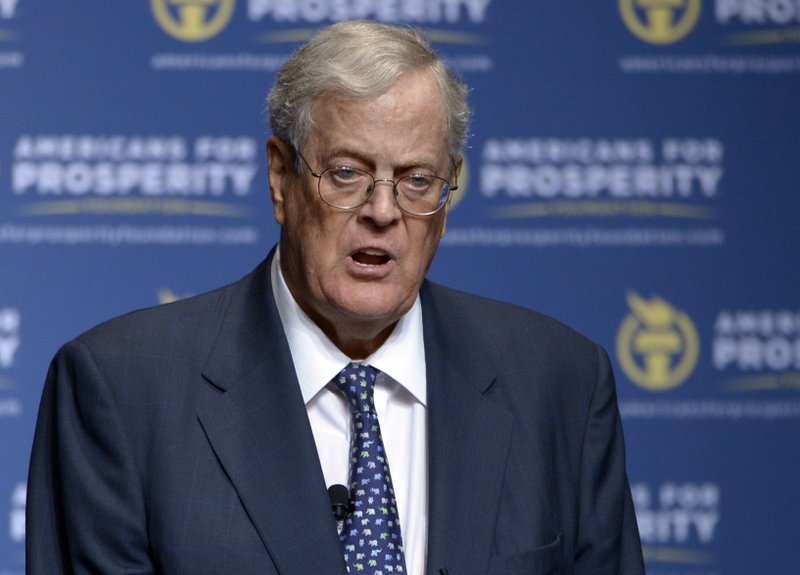NEW YORK -- Billionaire industrialist David Koch, who with his older brother Charles poured a fortune into right-wing causes, transforming the American political landscape and shaping U.S. policies on such issues as climate change and government regulation, died Friday at 79.
The cause of death was not disclosed, but Koch Industries said Koch, who lived in New York City, had contended for years with various illnesses, including prostate cancer.
A chemical engineer by training, Koch was an executive in the family-run conglomerate, the Libertarian Party's vice-presidential candidate in 1980 and a major benefactor of educational, medical and cultural organizations.
But he and his brother became best known for building a political network dubbed the "Kochtopus" for its many-tentacled support of conservative and libertarian causes, candidates and think tanks, including the Cato Institute.
The brothers in 2004 founded the anti-tax, small-government group Americans for Prosperity, which remains one of the most powerful conservative organizations in U.S. politics, and they were an important influence on the tea party movement.
[Video not showing up above? Click here to watch » https://www.youtube.com/watch?v=mPeAshhcmGg]
While celebrated on the right, the Koch brothers have been vilified by Democrats and others who see them as a dark and conspiratorial force, the embodiment of fat-cat capitalism and the corrupting influence of corporate money in American politics.
Among other things, the Kochs and their company bankrolled a decades-long movement to cast doubt on man-made climate change and to thwart efforts to fight global warming.
The brothers also invested heavily in fighting President Barack Obama's health care overhaul. They pressed to bring conservative voices to college campuses. And they developed a nationwide grassroots network backing conservative causes and candidates at the state and national levels.
But the Kochs refused to endorse Donald Trump for president in 2016, warning that his protectionist trade policies, among other priorities, weren't sufficiently conservative.
David Koch had stepped away from a leadership role in recent years because of declining health, and his brother became the network's public face.
Information for this article was contributed by Seth Borenstein and Patrick Whittle of The Associated Press.
A Section on 08/24/2019
